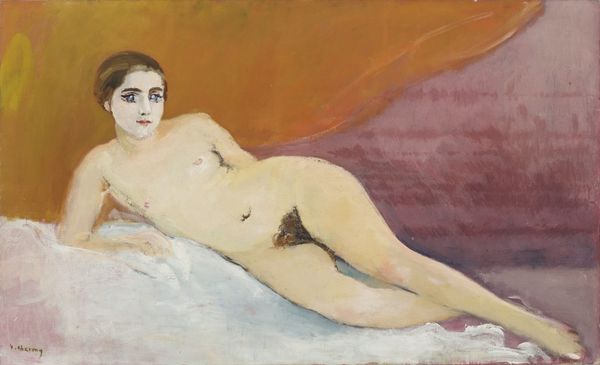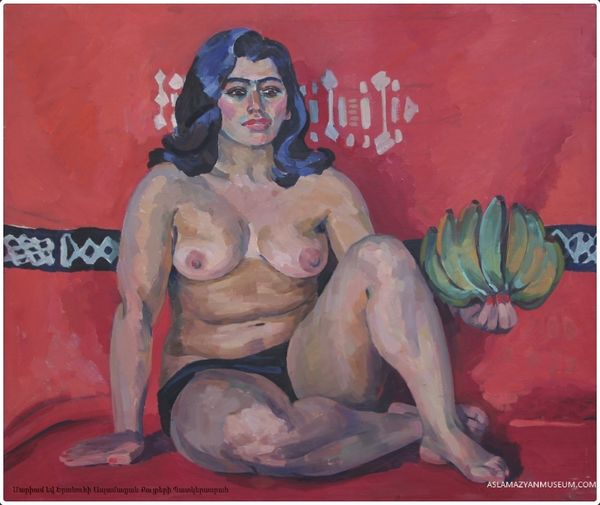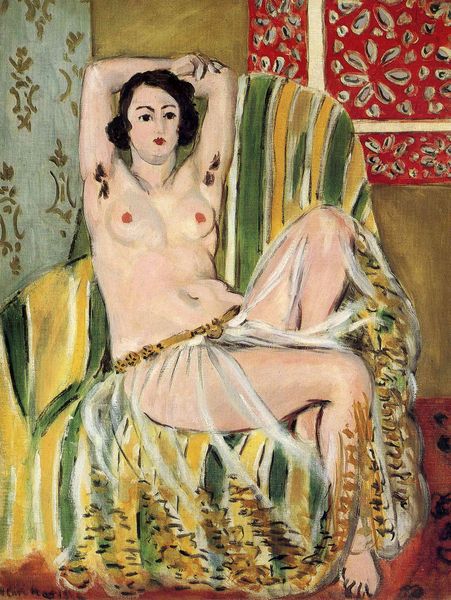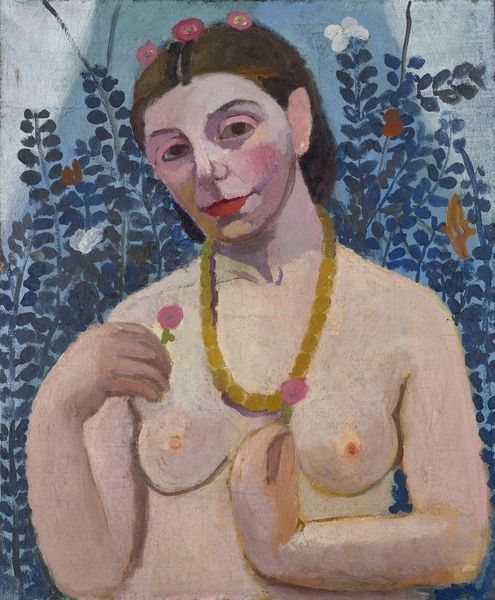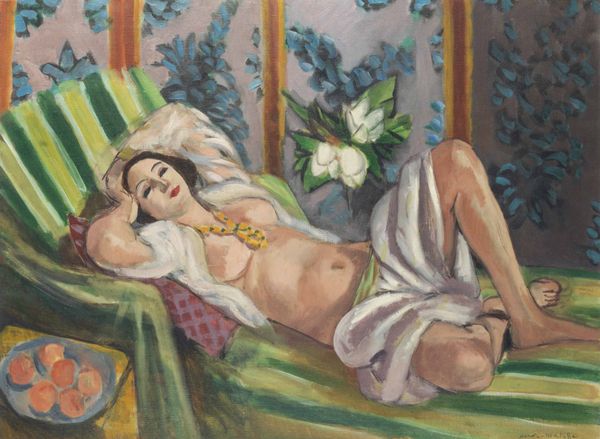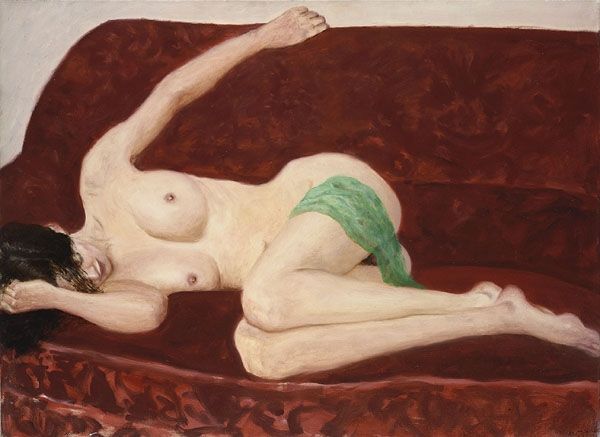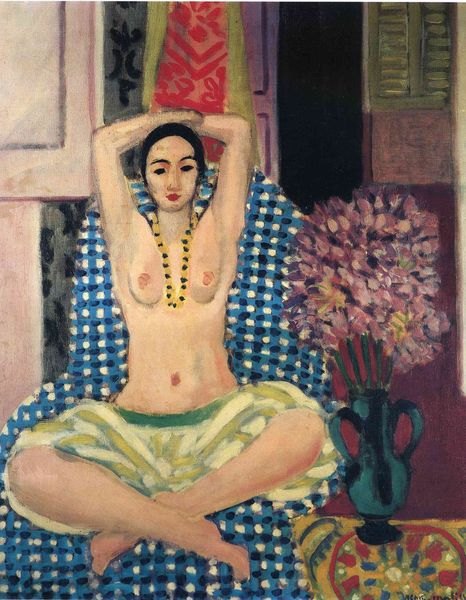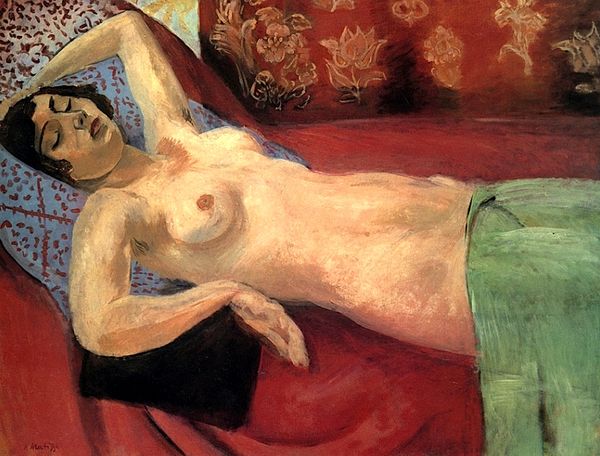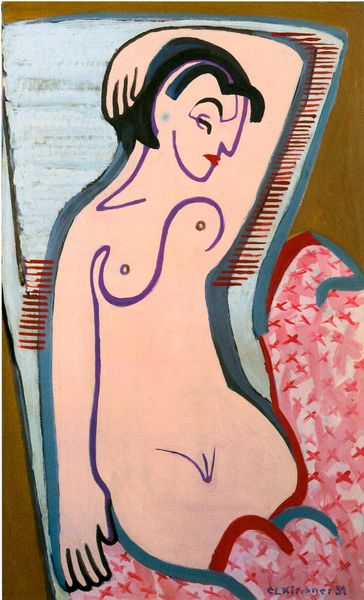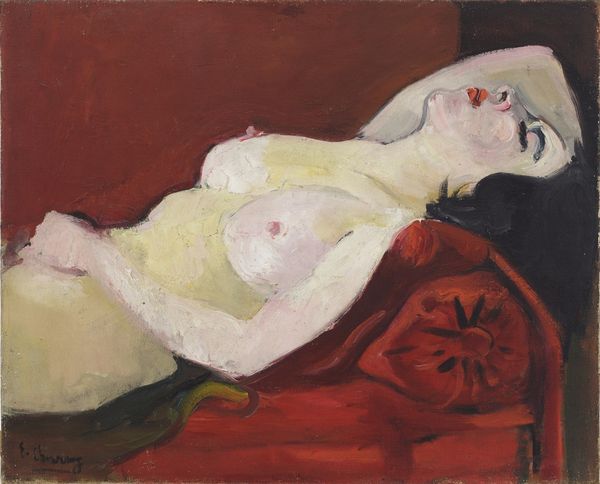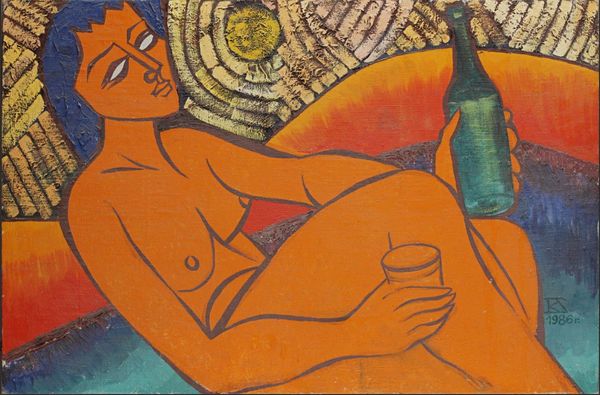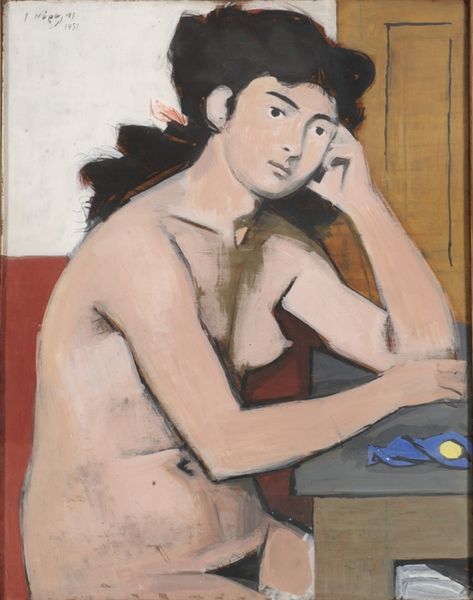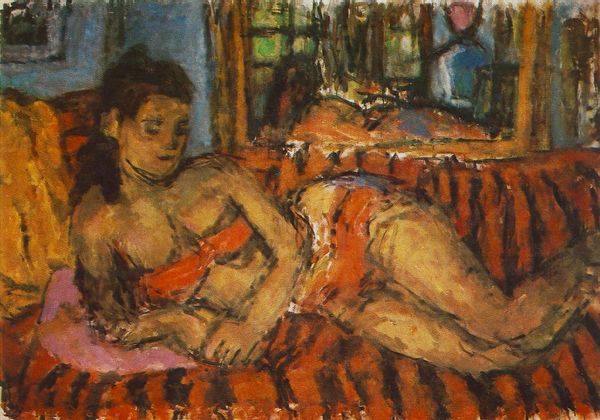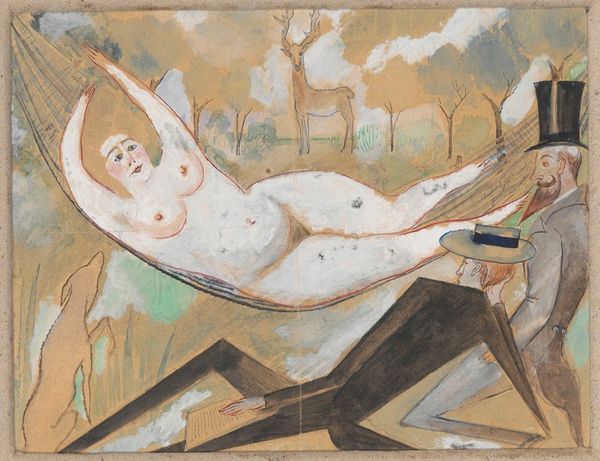
painting, oil-paint
#
portrait
#
art-nouveau
#
painting
#
oil-paint
#
rayonism
#
oil painting
#
expressionism
#
orientalism
#
nude
#
portrait art
#
expressionist
Copyright: Public domain US
Editor: This is Mikhail Larionov’s “Jewish Venus,” painted in 1912 with oil paint. I'm struck by the artist's portrayal of the reclining nude figure, especially set against that somewhat unsettling, vibrant green background. What's your interpretation of this work? Curator: Larionov's "Jewish Venus" is fascinating precisely because of its collision of tradition and iconoclasm. While the reclining nude clearly references centuries of art-historical precedent – think Titian or Goya – the title and the overt "ethnic" signifiers layered into the portrayal disrupt that classical framework. How might this positioning reflect anxieties surrounding identity and representation within the early 20th century avant-garde, and Larionov's own complex relationship with his heritage? Editor: So it’s like Larionov is challenging conventional beauty standards and engaging with discussions around cultural identity? Curator: Absolutely. This Venus, with her specific features and the photographs behind her, isn't a universalized ideal. Consider also the period: 1912. Just before the Great War, a time of rising nationalism, increasing antisemitism, and the ferment of artistic revolution. Do you think her pose—is it inviting or guarded? Editor: It feels…almost defiant? She meets the viewer's gaze directly. Also, are those bandages I see on her legs? What could they signify? Curator: Indeed! Those could represent trauma, imposed or otherwise. We can read it as a bold statement, reclaiming agency and challenging the objectification inherent in the nude genre. It forces us to confront the specific realities of the depicted subject, and perhaps even broader societal prejudices. Editor: I hadn’t thought about it that way. Seeing it as a statement about resisting cultural expectations and historical narratives makes the painting much more powerful. Curator: Precisely. It's a testament to art's capacity to both reflect and reshape our understanding of the world.
Comments
No comments
Be the first to comment and join the conversation on the ultimate creative platform.
